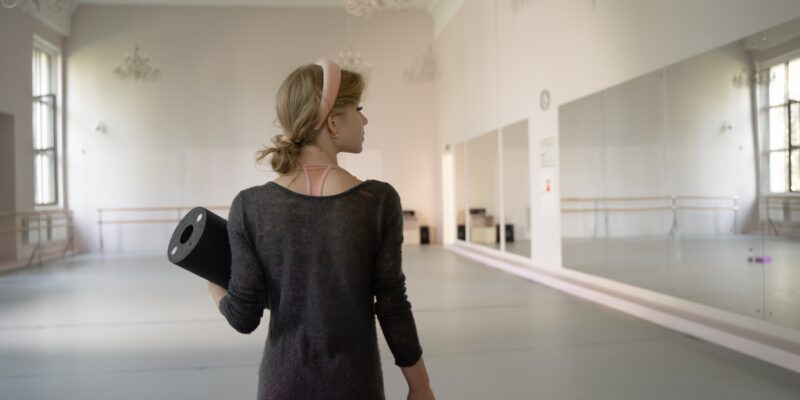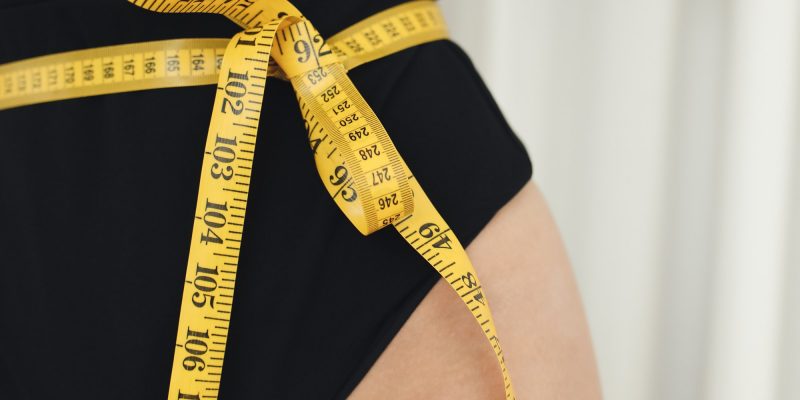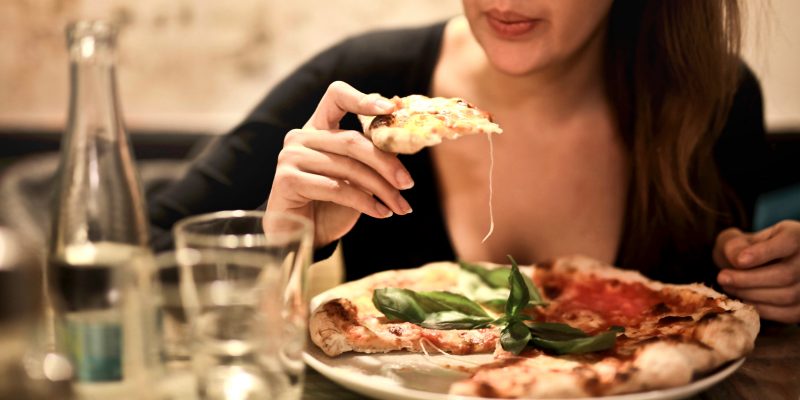With body ideals at the forefront of the industry, dancers are especially vulnerable to perfectionistic behaviors surrounding both food and body. High expectations and striving to perfect the imperfect create an environment prone to obsessive tendencies and comparative behaviors. As a recovering perfectionist, I’ve learned to utilize a proactive effort to shift superhuman ideals into sustainable (and realistic) goals. For this blog post, I’ve teamed up with licensed psychotherapist Amy Pope-Lantham to explore five strategies that can help dancers tackle the all-or-nothing mindset and find a healthier balance in their dance journey.
Read More...How to support a friend through disordered eating
When you suspect that a dance friend is struggling with disordered eating or an eating disorder, it can be challenging to know how to offer effective support. Fears of “saying the wrong thing” leaves many dancers at a loss for words. And while the conversation is one to tread lightly, avoidance can drive even the closest of friends further apart. If you suspect a dance friend is struggling with disordered eating or an eating disorder, here’s what to do.
Read More...Comparisons in dance: your ultimate guide
Comparisons in the studio are, unfortunately, a common obstacle facing many dancers. Constantly comparing their skills, progress, and achievements to fellow dance peers— it can feel like an uphill battle for dancers to not compare themselves to others. This mindset isn’t just detrimental to a dancer’s self-esteem, it can also impede their creativity and overall performance potential. In this article, we explore why dancers are vulnerable to the comparative mindset, along with practical strategies to overcome it. The goal is to not strive for what feels impossible, but rather, to foster productive behaviors and a more fulfilling experience both in the studio and at mealtimes.
Read More...A Dancer’s Guide to Stress, Fatigue, & Overwhelm
It’s common for dancers to find themselves exhausted mentally, physically, and emotionally. Balancing a packed dance schedule with academic coursework is hard enough. Chronic fatigue can be detrimental to your health, well-being, and your ability to perform to your greatest potential. While a dancer’s schedule is notoriously difficult to manage, you owe it to your mind, body, and soul to find moments to breathe.
Read More...How To Stop Feeling Guilty After Eating- Overcoming Food Guilt
There was a time in my life when I avoided dessert because I believed, “the guilt just wasn’t worth the bite.” My food guilt was so severe that thoughts about eating the bag of M&Ms consumed me for DAYS after eating them. And while this mental parade of guilt was exhausting, it always made its way into my brain, especially after another bout of “failed willpower” from an otherwise “clean” diet. But in my pursuit away from restrictive eating behaviors I overcame this food guilt, and today, I’m going to teach you how to do the same.
Read More...Dancers & Disordered Eating
Has your interest in healthy eating become more of an obsession? Dancers are at risk to perfectionism, which can drive rates of disordered eating and eating disorders. Orthorexia describes the unhealthy obsession with healthy eating. Learn more about orthorexia and disordered eating among dancers.
Read More...Dancers, Fear of Weight Gain isn’t helping
During a layoff or time spent not dancing, it is possible that you’ll gain weight. It’s also possible that you’ll lose weight and maybe even maintain your weight. If you’re coming from a place of extreme food restriction, it’s likely that you’ll experience weight gain upon healing your relationship with food. Coming to terms with a few truths is often part of the puzzle. Here are 10+ truths about dancer weight gain.
Read More...Overcoming The Orthorexic Identity
What is The Orthorexic Identity? Dancers who experience a history of disordered eating, including orthorexia, commonly face the struggle of overcoming the orthorexic identity. Perhaps family members have labeled you as “the healthy one”. Or friends consider you the “good dancer” for eating “right” and keeping up with your demanding cross-training schedule. For dancers who […]
Read More...Should dancers eat less when not dancing?
Rest days provide your body with the time needed to recover; this means your muscles heal from intense training, your energy replenishes to prevent chronic fatigue, your mindset resets to prevent the onset of burnout, and ultimately, you reduce your risk for injuries (especially chronic overuse injuries). Here are key strategies to effortlessly navigate time away from the studio.
Read More...Understanding RED-S in Dancers
With at least 10-12 percent of dancers weighing below ideal body weight for health, it’s critical to take steps to reduce your risk of RED-S and thus, your risk of injury. Here are 3 effortless strategies to ensure your meal plan supports energy balance.
Read More...Balanced and Guilt-Free Holiday Eating Tips for Dancers
Actionable tips for a healthy and balanced approach to eating on the holidays. Consider these 5 tips to not only build confidence around your dinner table but to also find more freedom and enjoyment throughout the season.
Read More...Dealing With Diet Talk- Your Ultimate Guide
Since we cannot control or prevent all instances of criticism, it helps to equip yourself with the tools to educate and set boundaries as needed. But how? The first step is to decide if it’s worth the energy to educate others about your lifestyle decisions.
Read More...Mindful Eating For Dancers
When you begin to utilize the tool of mindful eating, you add back a major nutrient to your balanced plate: experience. From that experience, whether it is positive, negative, or neutral, blooms a unique learning opportunity that allows you to move forward with building trust with your body’s intrinsic cues of hunger, fullness, and satisfaction.
Read More...Get Started With Gentle Nutrition
From pre-performance snacks to post-performance recovery, nutrition education is essential to a dancer’s training. But as I’ve discussed previously, dancers must juggle aspects of performance nutrition and meal planning, both of which can hover the realms of diet culture, with the goal of avoiding restrictive eating habits. To balance the importance of performance nutrition with the fundamentals of a non-diet lifestyle, we must recognize the tenth principle of intuitive eating: “gentle nutrition.”
Read More...How to Handle Rejection at Your Dance Audition
How can dancers navigate audition disappointment and rejection? With diet culture especially prominent in the dance industry, the urge for dancers to regain any semblance of control often translates into unsustainable behaviors like restricting food intake or partaking in excessive cross-training routines. But using food as a tool for self-control, rather than self-care, quickly backfires as restrictive dieting leads to exhaustion, burnout, and even injury.
Read More...The Healthy Dancer® Review: What Tiny Pretty Things Gets Right
As a nutritionist for dancers, my work goes far beyond meal plans and portion guides. It’s about advocating for a healthier, more sustainable dance world— one where artistry isn’t sacrificed for body image, and well-being is prioritized alongside technique. I’ve made it my mission to help shift our industry away from outdated, harmful standards. So naturally, I was apprehensive when I hit “play” on Tiny Pretty Things. Here’s my review of the Netflix drama.
Read More...Reintroduce Trigger Foods
Most “Type A” dancers have something in common when it comes to his or her relationship with food. Especially for those with a sparked interest in nutrition: Type A dancers love sticking to safe foods. Often times, these are highly nutritious, plant-based, and minimally processed (like the ones I mentioned above).
Read More...


















